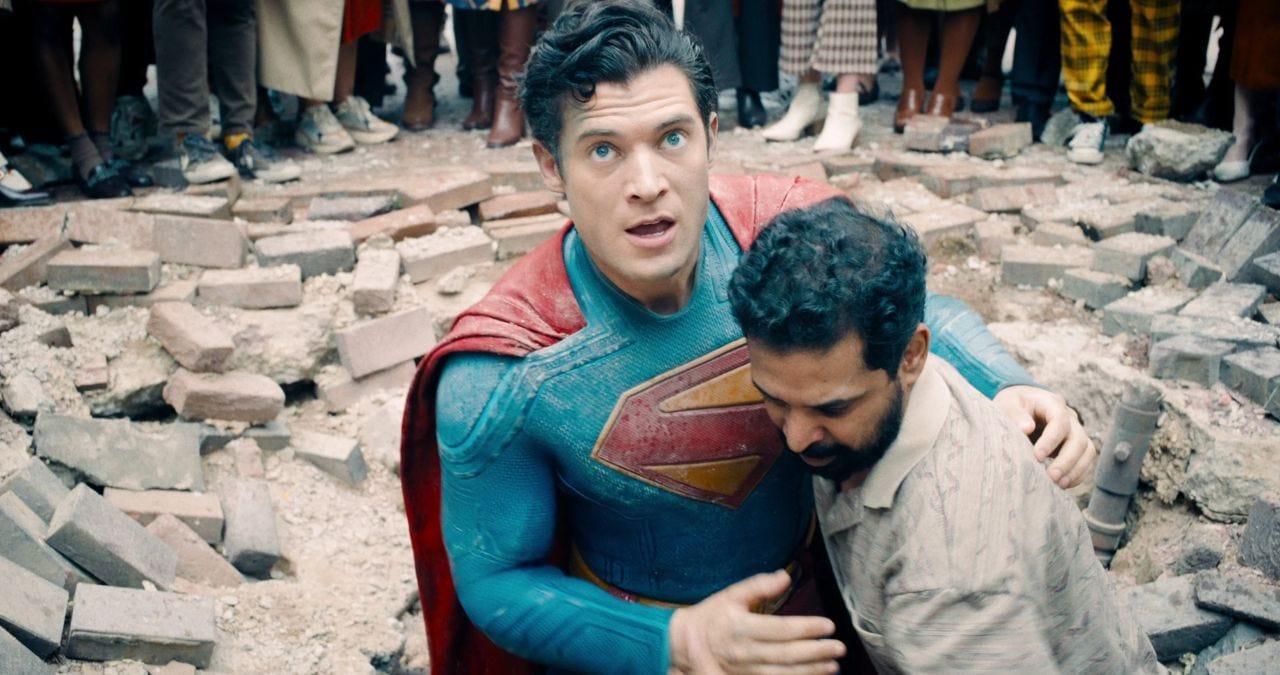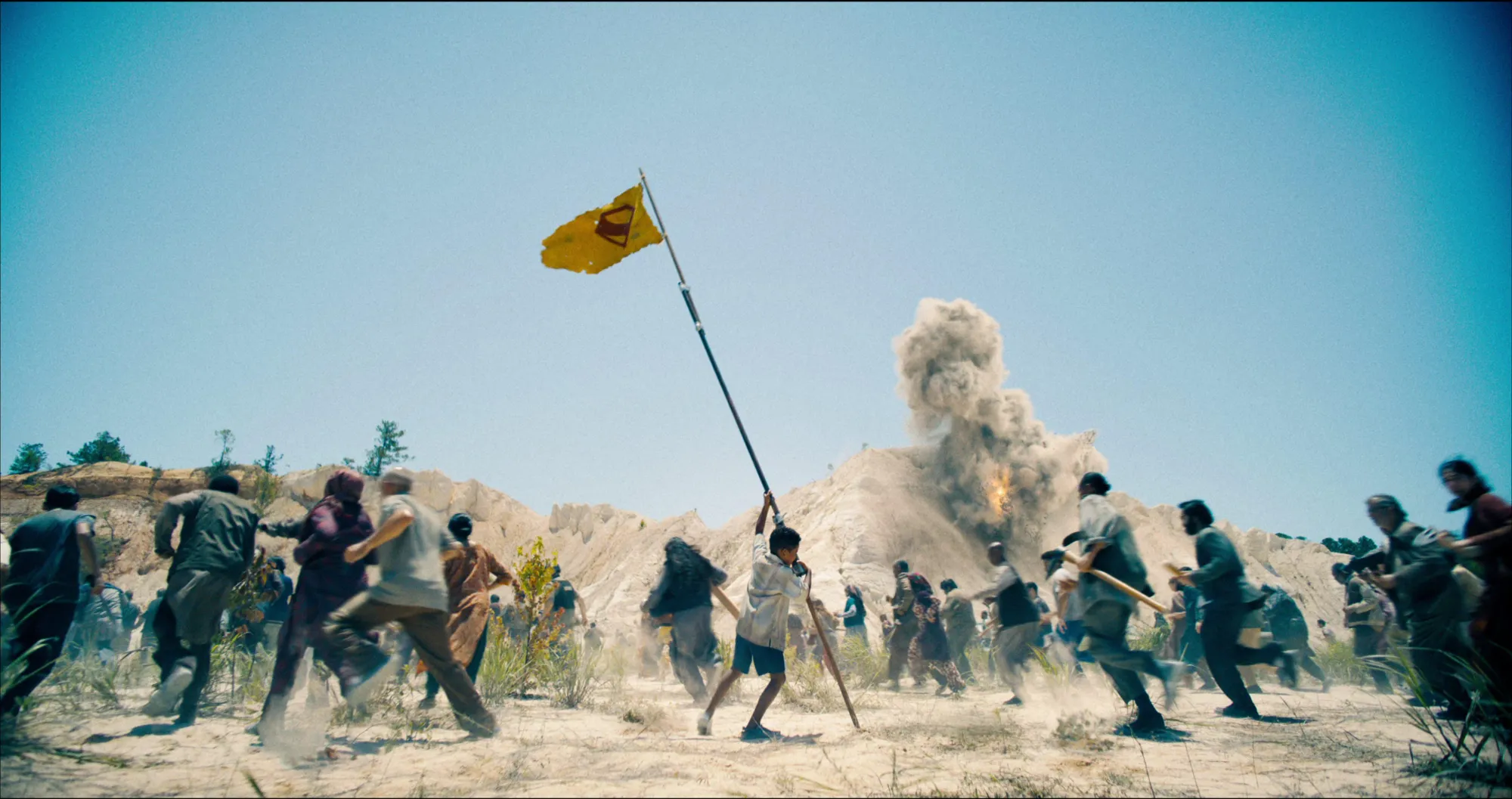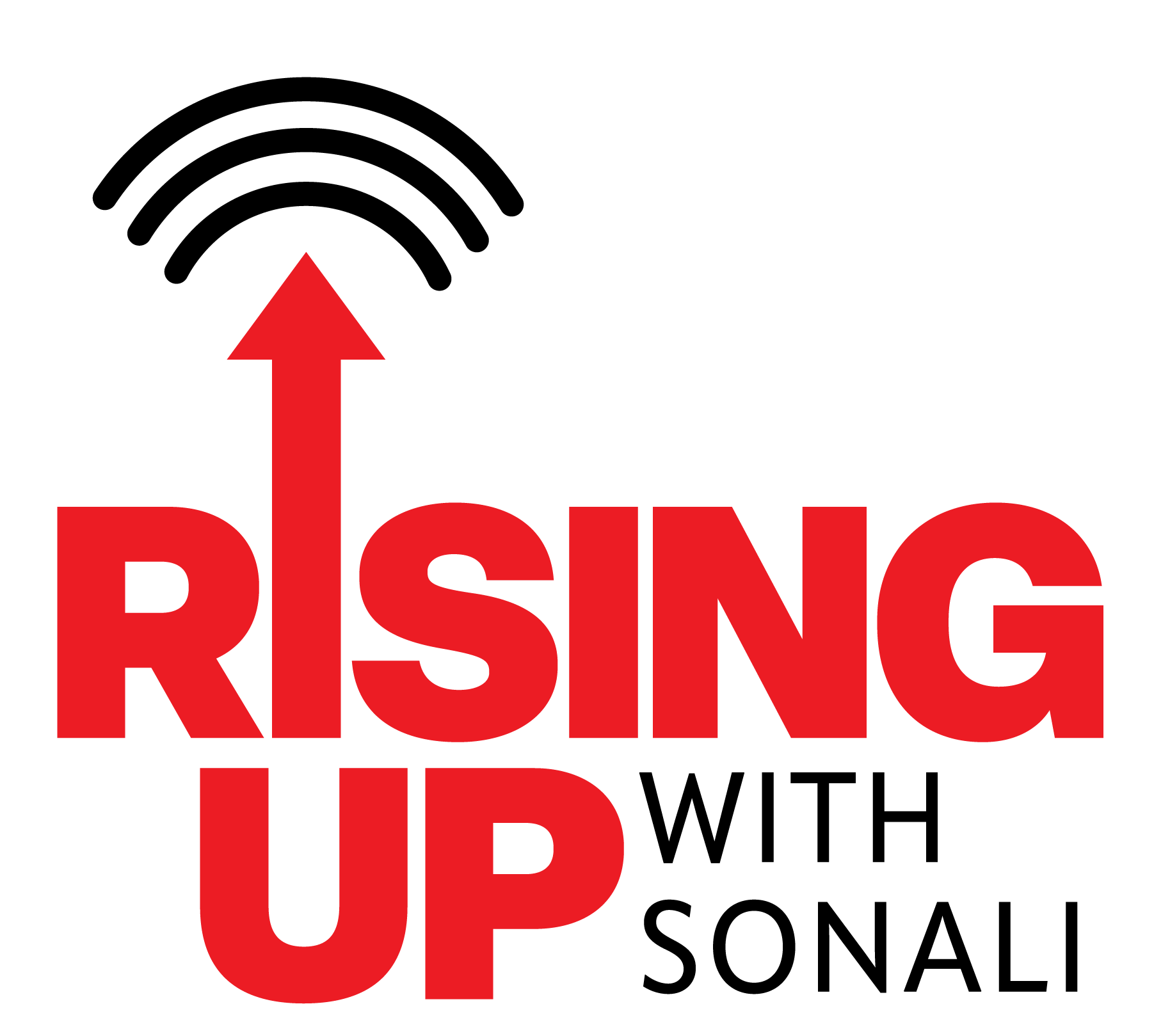On Colbert & Superman: White Hosts, White Saviors & More of the Same
Among the biggest pieces of news over this past week was CBS's termination of Stephen Colbert's contract. The news garnered more outrage than, say, Israel's massacre of nearly 80 Palestinians waiting to obtain food aid from the UN. Theories abound as to why CBS made the decision–one that Trump openly cheered–and the most popular speculation is that Colbert is being punished for his criticism of the network's decision to settle a Trump lawsuit to the tune of $16 million.
I have a confession to make.
When Jon Stewart spoke up, voicing fears about his own fate at Comedy Central, when Trump joked that ABC's Jimmy Kimmel was next in line to be fired, and when some on social media suggested replacing HBO's Bill Maher with Stephen Colbert, I did a double take.

I tried picturing all these men in my mind's eye and couldn't, for a long moment, differentiate between them. I tried to invoke Jimmy Kimmel's face and had to search online for his photo, wondering if I was instead thinking of Jimmy Fallon (I was). Yes, there are differences between them–Maher is a noxious boor, while Colbert and Stewart are significantly better behaved, with political views to the left of center– but anyone who's complained about Diversity, Equity and Inclusion policies being out of control in our institutions, has conveniently ignored late-night television.
WHY. SO. MANY. WHITE. MEN on late night television? Throw in Seth Meyers, Conan O'Brien, and John Oliver, and ... sigh...
And why stop there? Commercial media is broken as a whole. It has devolved into a nonstop churn of advertisements, manipulation, and insipid fare appealing to the lowest common denominator.
Speaking of insipid fare, after hearing so much hype about the new Superman film and how it is reportedly an anti-genocide allegory aimed at Israel, I went with my family to see the DC Studios creation (DC is owned by Warner Bros, which in turn also owns a conglomeration of other media outlets including CNN and HBO).
What I encountered in the James Gunn (yes, another white man) film wasn't so much an anti-genocide story as much as a white savior one.
[WARNING: SPOILERS AHEAD]
In the new Superman movie, a brown skinned, vaguely South Asian or Arab man named Mali helps the Kryptonian hero out of a crater he was blasted into, within the first few minutes of the film. I immediately filed this away, knowing Hollywood's favored tropes, and told myself, "that guy's gonna die."

I was right. Mali was violently murdered later in the film, sacrificed as a prop to showcase Superman's emotions, to lift up an alien's humanity. (My 12-year-old later asked, "How come they saved the dog but not the man?")
A central theme in the film, the one that fans are claiming offers an anti-genocide parallel to the real world, is Superman's desire to stop the fictitious white-ish nation of Boravia from invading and conquering the very brown, vaguely South Asian nation of Jarhanpur. The film's writers once more use the colonized brown hordes as props to showcase Superman's thirst for justice. In the moments when the invaders are launching a ground assault on the seemingly impoverished nation, little brown children raise a flag– not their own nation's flag, but Superman's.

No Jarhanpurian hero emerges. The nameless brown multitudes desperately wait for their white savior who, by virtue of the villain holding him hostage, never arrives. Instead, a proxy Western battalion of secondary superheroes shows up to save the hapless hordes.
Hollywood's liberal white writers love this trope. It enables them to showcase their own humanity at the expense of brown people's agency. So, NO, the new Superman film was not some boundary-breaking revelation. It was more of the same--the same sort of pabulum that aims to please the masses without actually bringing up important and interesting questions about who gets to be seen as human.
We can do so much better. On television. In film. And in the real world.
P.S. Inquest, a publication of the Institute to End Mass Incarceration, just published a chapter from my new book Talking About Abolition: A Police-Free World is Possible. The chapter is a transcript of my conversation with the incredible academic Gina Dent, and you can read it at the link below. I promise, it's WORTH THE READ.


